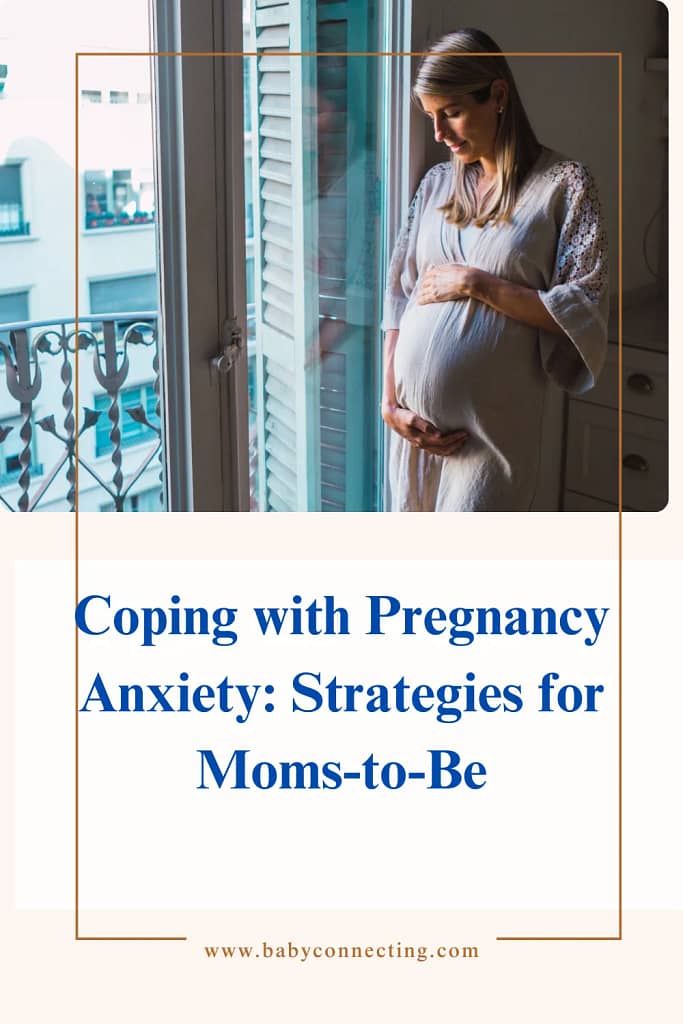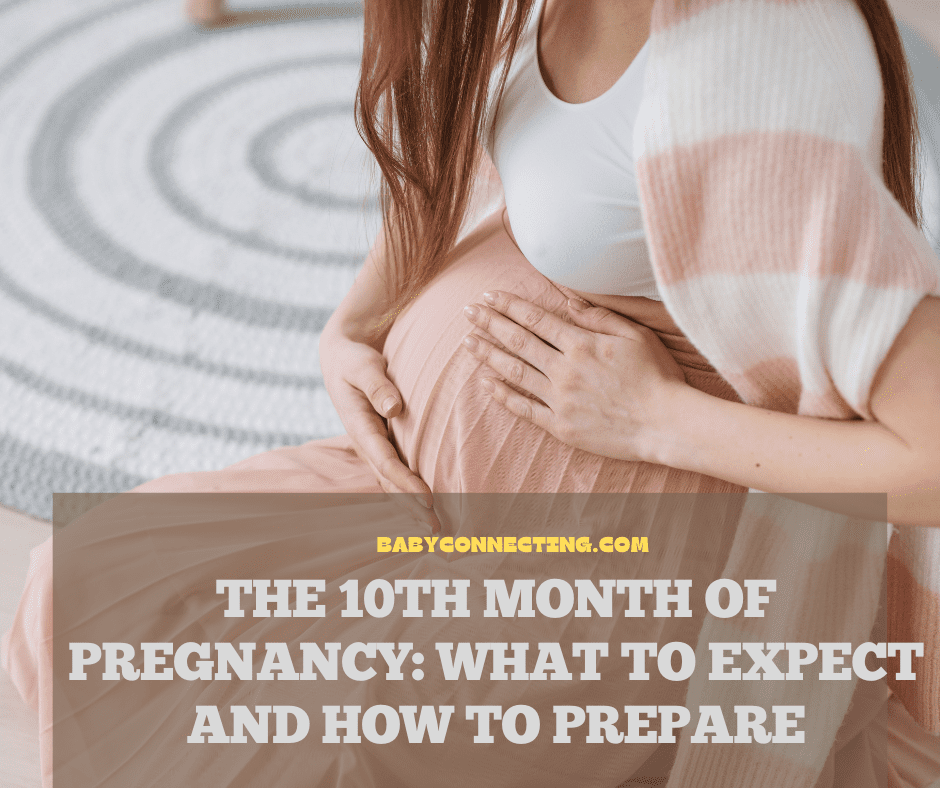Coping with Pregnancy Anxiety: Strategies for Moms-to-Be
Pregnancy is often regarded as one of the most joyous experiences in a woman’s life, but for many expectant mothers, it can also bring about significant feelings of anxiety and stress. From worrying about the health of the baby to anticipating labor and adjusting to the changes in your body, pregnancy can be an emotional rollercoaster. While some level of anxiety is normal, persistent and overwhelming feelings of fear or worry can affect your mental and physical well-being.

In this comprehensive guide, we’ll explore the causes of pregnancy anxiety, common symptoms, and most importantly, effective strategies to help you cope with and manage anxiety during this transformative time. Whether you’re dealing with worries about childbirth, your baby’s health, or other aspects of pregnancy, these strategies will empower you to take control of your mental health and enjoy a more peaceful pregnancy.
1. Understanding Pregnancy Anxiety
Pregnancy anxiety refers to the feelings of fear, worry, and nervousness that many women experience during pregnancy. It’s important to recognize that anxiety during pregnancy is common and doesn’t mean you’re doing anything wrong. However, when anxiety becomes excessive or interferes with your ability to function in daily life, it’s essential to take steps to address it.
Causes of Pregnancy Anxiety
Several factors can contribute to pregnancy anxiety, including:
Hormonal Changes: The surge in pregnancy hormones, such as progesterone and estrogen, can impact your mood and trigger feelings of anxiety.
Physical Discomfort: The physical changes during pregnancy, such as nausea, fatigue, and body aches, can contribute to stress and worry.
Fears About Childbirth: Many women experience anxiety about the labor and delivery process, including fears about pain, complications, or the unknown.
Concerns About Baby’s Health: Worries about the baby’s development, safety, or potential complications can create anxiety for many expectant mothers.
Life Changes: Pregnancy marks a significant life transition, and the anticipation of becoming a parent can lead to concerns about your ability to care for a newborn, the financial impact, and adjusting to a new routine.
Types of Pregnancy Anxiety
General Anxiety: Ongoing feelings of worry about various aspects of pregnancy and childbirth.
Health Anxiety: Fears related to the health and well-being of the baby.
Labor Anxiety: Worries about the birth process and whether it will go smoothly.
Postpartum Anxiety: Concerns about the transition into motherhood, caring for a newborn, and postpartum recovery.

2. Symptoms of Pregnancy Anxiety
Pregnancy anxiety can manifest in both physical and emotional ways. Recognizing the symptoms is the first step toward addressing anxiety and seeking help if necessary.
Emotional Symptoms
Excessive Worrying: Constantly worrying about your health, the baby’s health, and the future.
Fear or Panic: Feeling overwhelmed by irrational fears, especially regarding childbirth or complications.
Irritability or Restlessness: Feeling easily agitated or on edge.
Difficulty Relaxing: Constantly feeling tense, restless, or unable to unwind.
Feelings of Helplessness: A sense of being out of control or incapable of managing the changes in your life.
Physical Symptoms
Increased Heart Rate: Feeling your heart race or having palpitations.
Fatigue or Sleeplessness: Difficulty falling asleep or staying asleep due to racing thoughts.
Muscle Tension: Tightness in the body, especially in the neck, shoulders, and back.
Headaches or Dizziness: Physical discomfort often linked to anxiety.
Stomach Issues: Nausea, upset stomach, or digestive problems.
If these symptoms become overwhelming or persistent, it’s important to reach out to a healthcare provider to discuss your mental health and explore treatment options.

3. The Impact of Pregnancy Anxiety on Your Well-being
While some level of anxiety is normal, excessive anxiety can have a negative impact on both your mental and physical health. Here are some ways pregnancy anxiety can affect you:
Impact on Physical Health
Chronic stress and anxiety during pregnancy can contribute to physical health issues such as high blood pressure, poor digestion, and trouble sleeping. In severe cases, anxiety can increase the risk of complications such as preterm labor or gestational hypertension.
Impact on Mental Health
Untreated anxiety can lead to depression or even postpartum depression. It’s important to address pregnancy anxiety early on to prevent it from affecting your long-term mental well-being.
Impact on Your Bond with the Baby
While anxiety is natural, excessive worry can make it difficult to fully embrace the pregnancy experience. Constant fear and stress may interfere with your ability to connect with your baby emotionally.
Impact on Relationships
Pregnancy anxiety can also affect your relationships with your partner, family, and friends. Stress may cause you to withdraw socially, make it difficult to communicate effectively, or strain your relationship with your partner.
4. Coping Strategies for Managing Pregnancy Anxiety
If you’re struggling with anxiety during pregnancy, there are several strategies you can implement to help manage and reduce stress. The key is finding what works best for you. Here are some effective coping techniques:
1. Practice Relaxation and Deep Breathing Techniques
Deep breathing exercises can activate the body’s relaxation response, reducing feelings of anxiety and tension. Taking a few minutes each day to focus on your breath can help calm your mind and body.
Breathing Exercises:
Inhale deeply through your nose for four counts.
Hold the breath for four counts.
Exhale slowly through your mouth for four counts.
Repeat for 5-10 minutes.
In addition to deep breathing, progressive muscle relaxation (PMR) can help relieve physical tension by systematically tensing and relaxing different muscle groups.
2. Stay Active with Pregnancy-Friendly Exercise
Exercise is a natural stress reliever and can help reduce anxiety. Physical activity releases endorphins, the body’s natural “feel-good†chemicals, which can improve mood and help you feel more relaxed. Gentle activities like walking, swimming, or prenatal yoga are excellent ways to stay active while relieving anxiety.
Tip: Always consult your doctor before starting any new exercise routine during pregnancy, especially if you have any complications.
3. Mindfulness and Meditation
Mindfulness involves being present in the moment and accepting your thoughts and feelings without judgment. Meditation can help you cultivate a sense of inner calm and reduce the impact of anxious thoughts. Incorporating mindfulness into your daily routine can improve your emotional well-being and reduce pregnancy-related stress.
Tip: You can use guided meditation apps, listen to calming music, or even join a prenatal yoga class that incorporates mindfulness practices.
4. Get Support from Loved Ones
Talking to your partner, family, or friends about your anxiety can provide much-needed emotional support. Simply expressing your feelings and knowing you’re not alone can alleviate some of the stress. If you’re feeling overwhelmed, don’t hesitate to ask for help with daily tasks, or schedule some quality time with your loved ones.
Tip: Join a pregnancy support group or connect with other expectant moms who may be going through similar experiences. Sharing your concerns with others who understand can be incredibly reassuring.
5. Avoid Stress Triggers and Practice Self-Care
While it’s not always possible to eliminate stress completely, identifying and minimizing stress triggers can help. Practice self-care by prioritizing activities that make you feel relaxed and calm. Whether it’s taking a warm bath, reading a book, or watching a movie, make time each day to unwind and care for yourself.
Tip: Maintain a balanced routine that includes activities you enjoy, as well as adequate rest and relaxation.
6. Educate Yourself About Pregnancy and Childbirth
Many women experience anxiety about the unknown aspects of pregnancy and childbirth. Educating yourself about pregnancy, labor, and delivery can provide reassurance and reduce fear. Consider attending prenatal classes, reading books, or watching documentaries about pregnancy and childbirth. Knowledge often helps to alleviate the fear of the unknown.
Tip: Talk to your healthcare provider about any concerns you may have regarding labor and delivery. Knowing your options and preparing for the experience can help reduce anxiety.
7. Maintain a Healthy Diet and Sleep Routine
A balanced diet and adequate sleep are essential for managing stress and anxiety. Focus on eating nutrient-rich foods that support your physical and mental well-being. Ensure you get enough sleep by creating a relaxing bedtime routine and making your sleep environment as comfortable as possible.
Tip: Limit caffeine intake, as it can exacerbate anxiety. Consider herbal teas like chamomile, which are known for their calming properties.
5. When to Seek Professional Help
In some cases, pregnancy anxiety may become overwhelming and difficult to manage on your own. If you find that your anxiety is interfering with your daily life, it’s important to seek professional help. Therapy, such as cognitive behavioral therapy (CBT), can help you identify and challenge negative thought patterns that contribute to anxiety.
Your healthcare provider may also recommend counseling or provide resources for managing anxiety. In some cases, medication may be necessary to help manage anxiety, especially if it becomes severe.
6. Conclusion
Pregnancy anxiety is a common experience, but it doesn’t have to define your journey. By understanding the causes of anxiety, recognizing the symptoms, and implementing coping strategies such as relaxation techniques, exercise, and support, you can manage your anxiety and enjoy a more peaceful pregnancy. Remember to be kind to yourself and seek help when needed—you’re not alone in this, and support is always available. Taking care of your mental health is just as important as taking care of your physical health during this special time.
Pregnancy is a beautiful and transformative experience, and while anxiety may come and go, it doesn’t have to overshadow the excitement and joy of welcoming a new life into the world. Stay connected to your body, your emotions, and the support around you, and you’ll find that you have the strength to navigate this journey with confidence and peace.


